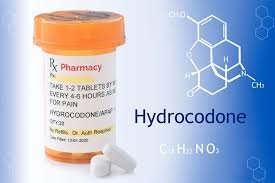Description
Tylophen Pills: Overview, Uses, and Considerations
Tylophen is a brand name for a medication that contains paracetamol (acetaminophen) and phenylephrine as its active ingredients. It is primarily used to relieve symptoms of common colds, flu, or other upper respiratory infections. Tylophen is a combination medication designed to provide relief from pain and congestion. Here’s an overview of its components, uses, dosage, and precautions.
Active Ingredients:
- Paracetamol (Acetaminophen)
Paracetamol is a widely used pain reliever and fever reducer. It works by inhibiting the production of chemicals in the body (prostaglandins) that cause pain and inflammation. It is commonly used to treat mild to moderate pain (such as headaches, body aches, and sore throats) and to reduce fever. - Phenylephrine
Phenylephrine is a decongestant that helps relieve nasal congestion by narrowing the blood vessels in the nasal passages. This reduces swelling and helps to open up the airways, making it easier to breathe.
Uses of Tylophen Pills:
Tylophen is used to relieve symptoms of:
- Cold and flu: It helps alleviate pain (headache, sore throat, muscle aches) and reduce fever.
- Nasal congestion: It acts as a decongestant, easing blocked nasal passages due to colds or allergies.
- Sinus pain or pressure: The combination of paracetamol and phenylephrine can reduce the discomfort from sinus congestion.
Dosage and Administration:
The dosage of Tylophen will depend on the specific formulation (tablet, capsule, etc.) and the individual’s age and health condition. It is important to follow the directions on the packaging or as advised by a healthcare provider. Typically:
- Adults and children over 12 years: The usual dosage is 1 to 2 tablets every 4-6 hours as needed, not exceeding 8 tablets per day.
- Children under 12 years: Consult a doctor before using Tylophen for children, as the dosage may vary.
Important: Never exceed the recommended dosage of paracetamol, as it can lead to liver damage. If symptoms persist for more than a few days, or if there is no improvement, it’s important to consult a healthcare provider.
Side Effects:
Although Tylophen is generally safe when used as directed, there are potential side effects, including:
- Common side effects: These may include mild dizziness, headache, or gastrointestinal discomfort (nausea, stomach upset).
- Serious side effects: Though rare, some people may experience allergic reactions, such as rash, itching, swelling, or difficulty breathing. Seek medical attention if these symptoms occur.
- Liver damage: Since paracetamol is metabolized by the liver, taking too much can lead to liver toxicity or failure.
Precautions and Warnings:
- Alcohol consumption: Avoid alcohol while taking Tylophen, as both alcohol and paracetamol can stress the liver.
- Liver or kidney disease: People with liver or kidney conditions should use this medication cautiously and consult a doctor before use.
- Pregnancy and breastfeeding: Tylophen should only be used during pregnancy if prescribed by a healthcare provider, and it is not generally recommended during breastfeeding without medical advice.
- Other medications: If you are taking other medications, particularly those that contain paracetamol, be cautious about combining them, as it can lead to overdose. Always inform your doctor of any other treatments you are using.
Conclusion:
Tylophen pills are an effective treatment option for relieving symptoms of colds, flu, and sinus congestion. When used as directed, they can help reduce pain, fever, and nasal blockage. However, it’s important to follow the recommended dosage and be aware of potential side effects and interactions with other medications. If in doubt, always consult a healthcare professional before using Tylophen, especially if you have existing health conditions or are taking other medicines.






Reviews
There are no reviews yet.